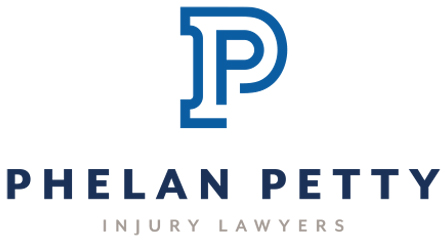Roundup Cover Up?
The International Agency for Research on Cancer (IARC), the specialized cancer agency of the World Health Organization’s (WHO), assessed the carcinogenicity of the herbicide glyphosate. Glyphosate currently has the highest global production volume of all herbicides and is the key ingredient in the popular weed killer Roundup. See IARC Monograph Vol. 112 (March 20, 2015). IARC’s assessment is that glyphosate is “probably carcinogenic to humans,” meaning it can lead to cancer. Id.
In reaching their conclusion, IARC’s panel of international experts performed a comprehensive review of and considered studies published in the scientific literature and data from governmental reports. According to the Monograph:
For the herbicide glyphosate, there was limited evidence of carcinogenicity in humans for non-Hodgkin lymphoma.
The evidence in humans is from studies of exposures, mostly agricultural, in the USA, Canada, and Sweden published since 2001. In addition, there is convincing evidence that glyphosate also can cause cancer in laboratory animals.
That report spurred hundreds of non-Hodgkin’s lymphoma patients to sue Monsanto, blaming their use of Roundup for their cancer.
Cover Up at EPA?
Monsanto says that there is no proof that glyphosate is carcinogenic, citing a report by the Environmental Protection Agency’s Cancer Assessment Review Committee that said that glyphosate is “not likely to be carcinogenic to humans.” The EPA’s assessment has been called into question. The former chairperson of the Cancer Assessment Review Committee may have been biased in favor of Monsanto. According to a filed motion in the Roundup litigation, Committee Chairman Jess Rowland “wanted to help Monsanto stop an investigation concerning the carcinogenictiy of glyphosate being conducted by The Agency for Toxic Substances and Disease Registry (ATSDR), an agency of the Department of Health and Human Services. See Plaintiff’s Motion to Compel the Deposition of Jess Rowland in In Re: Roundup Products Liability Litigation, MDL No. 2741, U.S. District Court Northern District of California. The motion also alleges that Mr. Rowland was placed on administrative leave within days of a preliminary EPA report on glyphosate being leaked to Monsanto. Finally, the motion alleges that Rowland’s committee reached conclusions favorable to Monsanto before evaluating scientific data.
The IARC report noted that in 1985 the U.S. EPA classified glyphosate as “possibly carcinogenic to humans” before changing its classification to not likely to be carcinogenic to humans.”
Fake Scientific Literature Published by Monsanto?
CNN reports that recently unsealed court documents appear to show that Monsanto mounted an effort to discredit the IARC report before it was even released.
A month before the IARC report came out in 2015, Monsanto executive William F. Heydens sent an internal email to company toxicologist Donna Farmer with the subject line “RE: IARC planning,” according to court documents. In that email, he suggested ghostwriting parts of an “overall plausibility paper” to save money. The unseemly practice by big pharma of ghostwriting studies and articles and then paying scientists to sign their name to the work resulted years ago in scientific journals requiring authors to sign a conflict of interest statement. The so-called “authors” can still participate in this practice as long as they disclose their financial interests in the subject of the article. According to the Monsanto executive’s email:
”If we went full-bore (with experts), we could be pushing $250K or maybe even more.”
A “less expensive/more palatable approach” might be to involve experts only for some of the less contentious parts of the report. Then, Monsanto would “ghost-write the Exposure Tox & Genetox sections.”
“[W]e would be keeping the cost down by us doing the writing.” Afterward, scientists outside Monsanto “would just edit & sign their names so to speak.”
“Recall that is how we handled Williams Kroes & Munro, 2000,” [referring to a previous report on glyphosate].
After the emails were unsealed, Monsanto said in a statement that the 2000 Williams Kroes & Munro report was not ghostwritten and that Mr. Heyden’s email was taken out of context. Mr. Heyden is the one who said the 2000 report was ghostwritten and his email was quoted verbatim.
I’d love to see a jury of small farmers decide who is telling the truth about the alleged cover up and fake literature.
If you or a loved one has non-Hodgkin’s lymphoma and would like more information about this issue, please contact us.
Michael Phelan is a Virginia trial attorney who practices with a special focus on traumatic brain injury (TBI) cases, pharmaceutical and medical device claims, product liability cases, and truck accidents. Michael’s peers have consistently recognized him for his excellence as a trial lawyer, and his clients have praised him for his commitment to deep research, his outstanding communication skills, and his sincerity and dedication.
